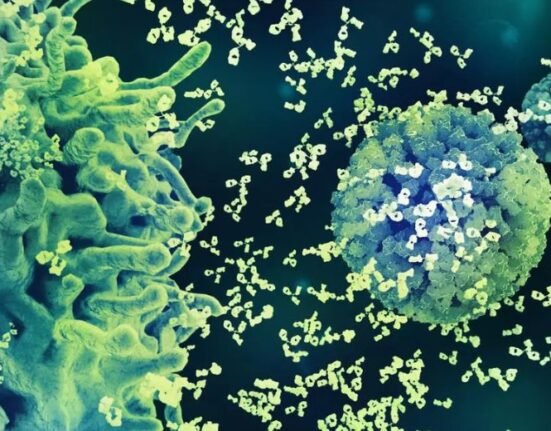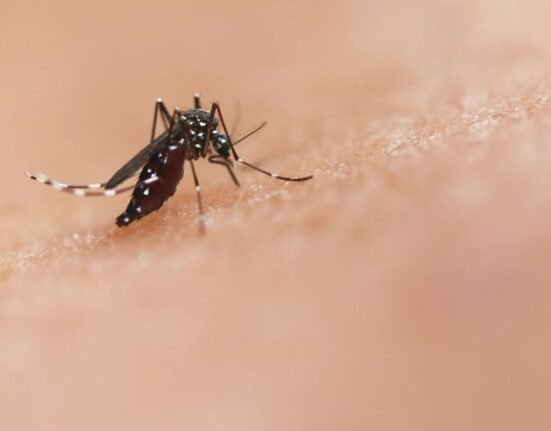By K. Leelamoni
March 2, 2024: A few days ago, I read in the newspaper about the family of a 62-year-old lady, who died in a road traffic accident, deciding to donate her organs.
What struck me most was the timely and prompt decision of her family to donate her liver, kidneys and cornea, which helped five people.
I admire their decision which was taken despite the emotional and personal issues involved.
Organ donation is the act of giving one or more organs (or parts thereof) without compensation for transplants. It is a very personal yet complex decision intertwined with medical, legal, religious, cultural and ethical issues.
Today organ donation encompasses the donation and transplantation of the heart, liver, kidneys, lungs, pancreas and intestines.
Tissue donation
Tissue donation is the process where tissues such as heart valves, bone, skin, ligaments, parts of the eye and pancreatic tissue, are removed from a donor and transplanted to another.
People of all ages can be a potential donor. The few medical contraindications are HIV-positive status, active cancer and systemic infection, sickle cell anaemia and a history of intravenous drug abuse.
The distribution of organ transplants worldwide shows that kidney transplants are by far the most common procedure.
In 2022, the estimated number of organ transplants worldwide was over 157 thousand of which almost two-thirds are kidney transplants. Though every year thousands of life-saving organ transplantations are performed, there remains an unmet need for organ donation globally.
Donated organs can come from a deceased person or a still-living donor. Living donors are those donating a kidney, part of the liver or parts of the lung, pancreas or intestine.
Long-term care
Deceased donors can donate after brain death or after cardiac death. Brain death is defined as the total cessation of brain function when a return to life is impossible. It should be remembered that coma is not brain death. Cardiac death occurs after irreversible cessation of cardiac function.
For a successful organ or tissue transplantation to occur, dedicated and extraordinary teamwork is needed. A team consisting of a clinician, nurse, social worker and allied health professionals make the process efficient and smooth while minimising the emotional impact on donor families.
Members of the team should have a clear understanding of the issues involved in organ and tissue transplantation.
Following successful transplantation into a host, the mainstay of long-term care is a combination of lifelong close monitoring and appropriate immunosuppression.
Patients need to understand that long-term monitoring is required throughout their lives. Clinicians must also update their knowledge of the latest non-invasive markers to assess immunologic injury.
While the majority of the public is in favour of organ donation, they often fail to include this decision in their will.
Organ shortage
This is a major obstacle since decision-making by the grieving family members is a difficult one.
The combined result is a tremendous tissue and organ shortage. Other challenges are concerned with permission, removal and rapid transfer of organs and tissues.
The Green Corridor system is a way to expedite organ transplants and save lives in which the traffic and police departments play a major role.
Green Corridor is a special route that is managed in such a way that all the traffic signals are green and controlled manually, from the hospital where the organ is harvested and the hospital where it is to be transplanted.
The transport time is reduced by about 70% which is of utmost importance, especially in the case of the heart which has to be transported within four hours.
India has come a long way in organ transplantation in the last few decades. About 17,000-18,000 solid organ transplants are performed every year — the most in the world after the US and China.
Organ trafficking
The discrepancy between current donation rates and the need for transplants results in a rise in unlawful operations, in the absence of a stringent regulatory mechanism.
To address the issue of organ trafficking and to ensure the fair allocation of organs from deceased donors, India passed the Transplantation of Human Organs and Tissues Act of 1994. The act made the commercialisation of organs a punishable offence and legalised the concept of brain death in India.
Moreover, the organ donation and transplantation activities are to be managed by the National Organ and Tissue Transplantation Organisation as per the act. The organisation functions as the apex body for activities relating to the procurement, allotment and distribution of organs.
The ethics of transplants in India has always been on a slippery slope and all kinds of nefarious activities were accepted as normal procedure. The general dictum became “When you can buy one why donate.”
‘Lucrative business’
The presence of a growing middle class, the lack of a proper health insurance scheme, and the growing disparity between the rich and the poor make organ donation a lucrative business.
It leads to the exploitation of poverty-stricken people by alluring them with financial gains, forgetting the factor that organ donation requires an invasive surgical procedure that has both physical and psychological impact on the person.
The sad truth remains that every day patients suffers morbidity and mortality due to lack of availability of tissue or an organ transplant.
If the families with the help of health professionals can make the difficult decision of organ donation at the time of death of their loved one, they are undoubtedly giving the gift of life to another human being.
(The writer was a former Head of the Department of Community Medicine at the Government Medical College in Kozhikode and Thiruvananthapuram and worked at the Amrita Institute of Medical Sciences in Kochi.)









1 Comment